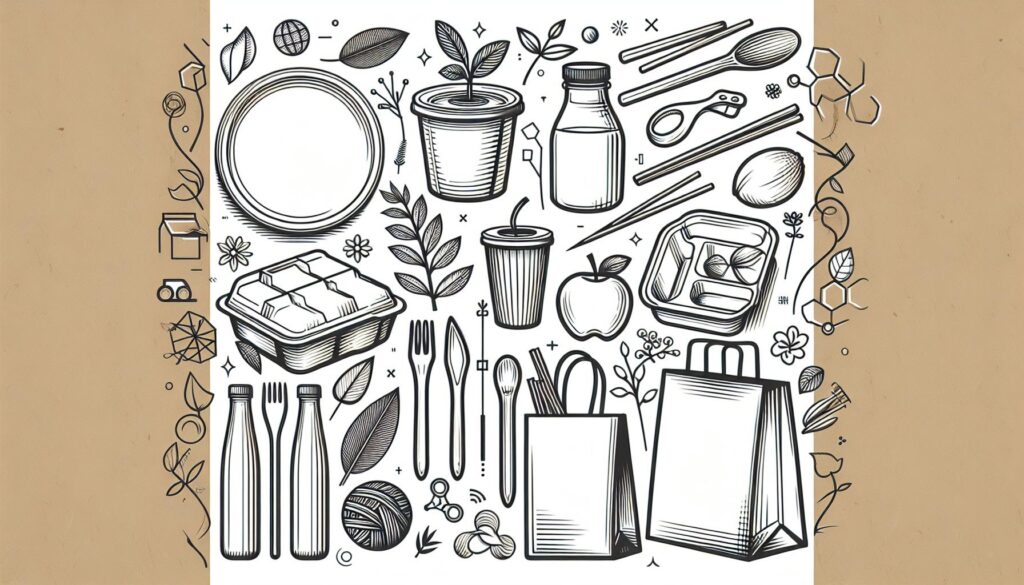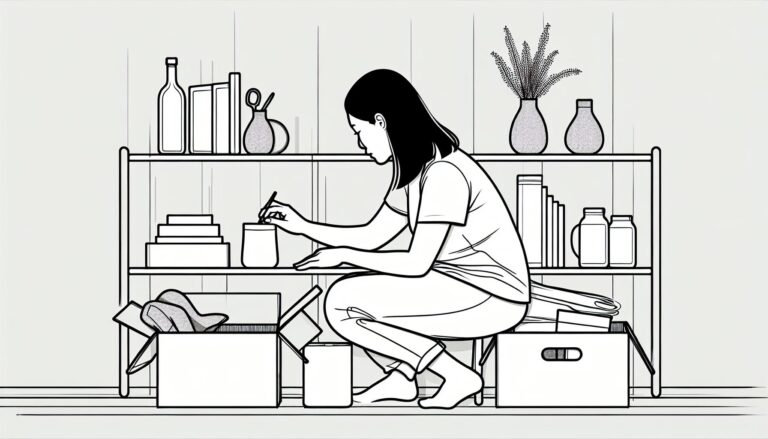As an eco-conscious consumer, I’ve always been intrigued by the impact of biodegradable products on the environment. From reducing waste in landfills to minimizing pollution, these products have the potential to revolutionize our approach to sustainability.
In this article, I’ll delve into the importance of incorporating biodegradable products into our daily lives and explore how their use can significantly reduce our carbon footprint. Join me as we uncover the benefits of these eco-friendly alternatives and learn how they contribute to a healthier planet for future generations.
What are Biodegradable Products?
Biodegradable products are items that break down naturally over time when exposed to the environment. These products are typically made from organic materials such as plant fibers, cornstarch, or even certain plastics that have been modified to degrade more quickly.
When disposed of, biodegradable products decompose into natural substances without leaving harmful chemicals behind. This process helps reduce waste in landfills and contributes to minimizing pollution.
Companies are increasingly turning to biodegradable materials to create a wide range of products, from packaging materials to utensils and even clothing. By incorporating biodegradable products into our daily lives, we can take a significant step towards creating a healthier planet for future generations.
Making the switch to biodegradable products may seem like a small change, but its impact on the environment can be profound.
Benefits of Biodegradable Products
When it comes to considering biodegradable products, the benefits extend far beyond just personal use. Switching to these eco-friendly alternatives can significantly reduce environmental impact and promote a sustainable lifestyle. Here are some key advantages of incorporating biodegradable products into our daily routines:
- Reduction of landfill waste: Biodegradable products break down naturally, minimizing the amount of waste that ends up in landfills.
- Decreased pollution: By using biodegradable materials, we can help combat pollution caused by traditional plastics and other harmful substances.
- Conservation of resources: Opting for biodegradable products encourages the use of renewable resources, promoting a circular economy that minimizes resource depletion.
- Lower carbon footprint: Manufacturing biodegradable products often produces less carbon emissions compared to non-biodegradable alternatives, supporting climate action efforts.
- Safer for wildlife: Biodegradable products pose less risk to animals and marine life, reducing harm caused by ingestion or entanglement.
Incorporating these environmentally friendly options into daily life can lead to significant positive impacts on our planet, making a difference in creating a healthier and more sustainable environment for future generations.
How Biodegradable Products Reduce Waste
When it comes to waste reduction, biodegradable products are truly groundbreaking. They break down naturally into harmless materials without leaving behind harmful residue. Unlike traditional plastics that can take hundreds of years to decompose, biodegradable products significantly reduce waste accumulation.
By choosing biodegradable options, I contribute to lessening the burden on landfills. In the US alone, about 30% of municipal waste comes from packaging materials. Biodegradable products offer a sustainable solution to this issue, as they can decompose in compost facilities and don’t require special treatment.
Not only do biodegradable products reduce waste generation, but they also minimize pollution. Traditional plastics pollute the environment through microplastics and toxic chemicals when they break down. In contrast, biodegradable products decompose naturally, preventing soil and water contamination.
In my daily choices, opting for biodegradable products is a simple yet impactful way to contribute to waste reduction and promote a cleaner environment.
The Role of Biodegradable Products in Minimizing Pollution
When it comes to minimizing pollution, biodegradable products play a crucial role in preserving the environment. Unlike traditional plastics that release harmful toxins, biodegradable products break down naturally into organic materials without leaving behind any harmful residue. This process helps prevent soil and water contamination, safeguarding ecosystems and wildlife habitats.
By choosing biodegradable options over conventional plastics, I am actively contributing to reducing pollution levels and promoting a cleaner environment. Biodegradable products do not add to the accumulation of microplastics in the environment, which can have detrimental effects on marine life and ecosystems. Instead, they offer a sustainable solution that aligns with environmental conservation efforts.
Moreover, the decomposition of biodegradable products in compost facilities does not require special treatment, making them an efficient and eco-friendly choice for waste management. This ease of disposal further enhances their environmental benefits and sets them apart from traditional plastics that can persist in the environment for centuries.
By making a conscious decision to incorporate biodegradable products into my daily routine, I am taking a proactive step towards reducing pollution, supporting sustainable practices, and contributing to a healthier planet for future generations.
| Key Points | Data/Statistics |
|---|---|
| Biodegradable products prevent soil and water contamination | |
| Choosing biodegradable options reduces pollution levels | |
| Biodegradable products do not contribute to the accumulation of microplastics |
Key Takeaways
- Biodegradable products break down naturally over time, reducing waste in landfills and minimizing pollution.
- Using biodegradable materials helps decrease pollution, conserve resources, lower carbon footprint, and ensure wildlife safety.
- Opting for biodegradable products encourages waste reduction, as they decompose into harmless materials without leaving harmful residue.
- Biodegradable options play a crucial role in minimizing pollution levels and preventing soil and water contamination.
- Incorporating biodegradable products into daily routines supports sustainable practices and contributes to a cleaner environment for future generations.
Conclusion
Biodegradable products play a vital role in safeguarding our environment by reducing pollution and promoting sustainability. Unlike traditional plastics, these eco-friendly alternatives break down naturally, preventing harmful toxins from contaminating our soil and water. By choosing biodegradable options, I actively contribute to a cleaner planet and help protect marine life from the dangers of microplastic accumulation. These products offer an efficient waste management solution that aligns with environmental conservation efforts. Incorporating biodegradable products into my daily routine is a proactive step towards supporting sustainable practices and ensuring a healthier future for generations to come.



